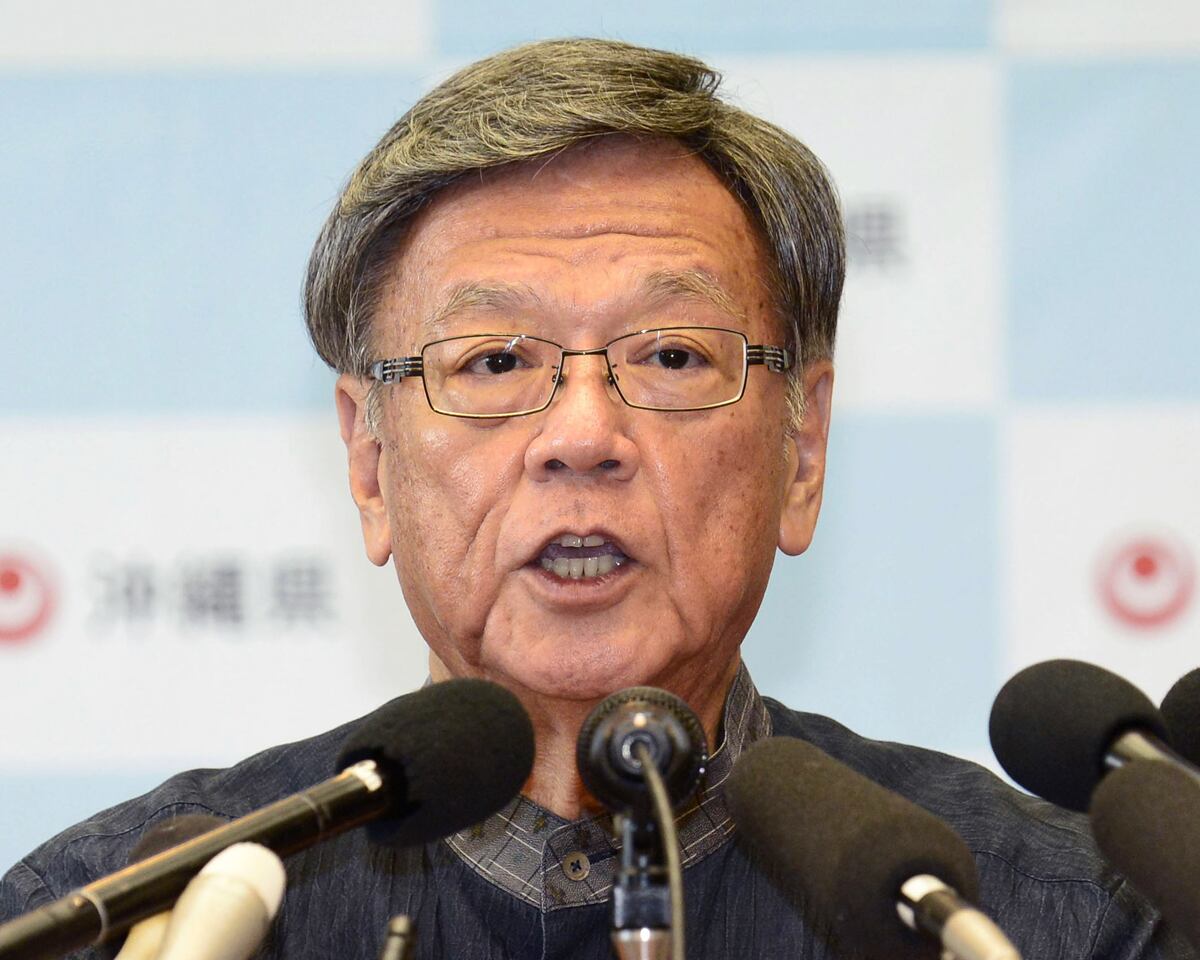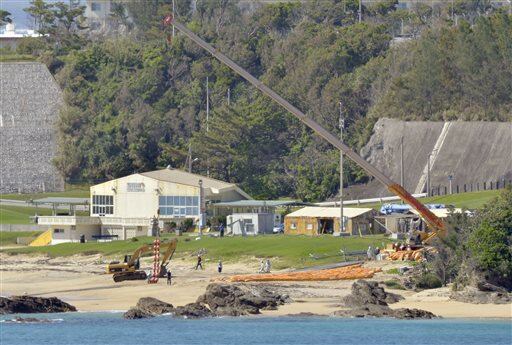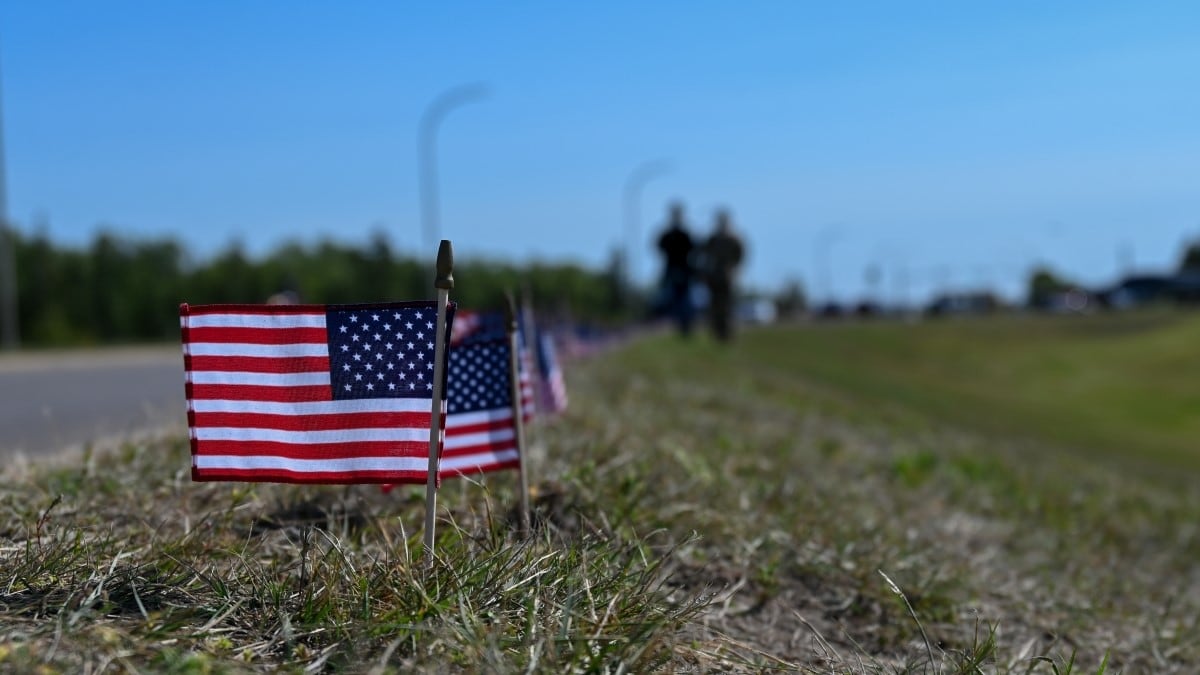GENEVA — The governor of Okinawa has taken his effort to prevent the construction of a new U.S.military site in Japan to a key United Nations human rights body, arguing that democracy and self-determination are threatened because his constituents oppose it.
Takeshi Onaga said he's the first Japanese governor to appear before the U.N. Human Rights Council in Geneva. He wants to put an international spotlight on U.S. Marine Air Station Futenma, which is slated to move to a less-developed area on Okinawa called Henoko.
Speaking to reporters Tuesday, Onaga faulted a lack of transparency from Japan's government about whether it is unwilling to stand up to the U.S. or it actually wants the base. He said U.S. Sen. John McCain told him he saw it as a domestic Japanese matter.
Onaga said he was considering ways to block the move himself.
"The construction is scheduled for the next 10 years and during that period there are a number of authorizations that the Okinawa governor, and also the mayor of Nago, need to issue," he said, referring to a town near Henoko.

Okinawa Gov. Takeshi Onaga speaks during a Sept. 14 press conference at the prefectural government office in Okinawa, Japan.
Photo Credit: Hiroko Harima/Kyodo News via AP
The governor pointed to the potential environmental threat to coral reefs and sea life that the base poses. He also cited several American former officials, insisting they too question the strategic importance of the new Okinawa site.
Okinawa residents are upset at having to live alongside the Marine air station, and say the relocation only moves the burden elsewhere. They want the base off the island entirely. Onaga was elected last year on promises to fight the move.
Anti-military sentiment is high on Okinawa, which houses more than half of the 50,000 U.S. troops stationed in Japan. In terms of space, 74 percent of U.S. bases are on the island, which has only 0.6 percent of Japan's land.
Onaga spoke to the 47-nation Human Rights Council on Monday. The council is a leading forum for scrutiny of member nations' human rights records, but has no authority over the actions of any country.




